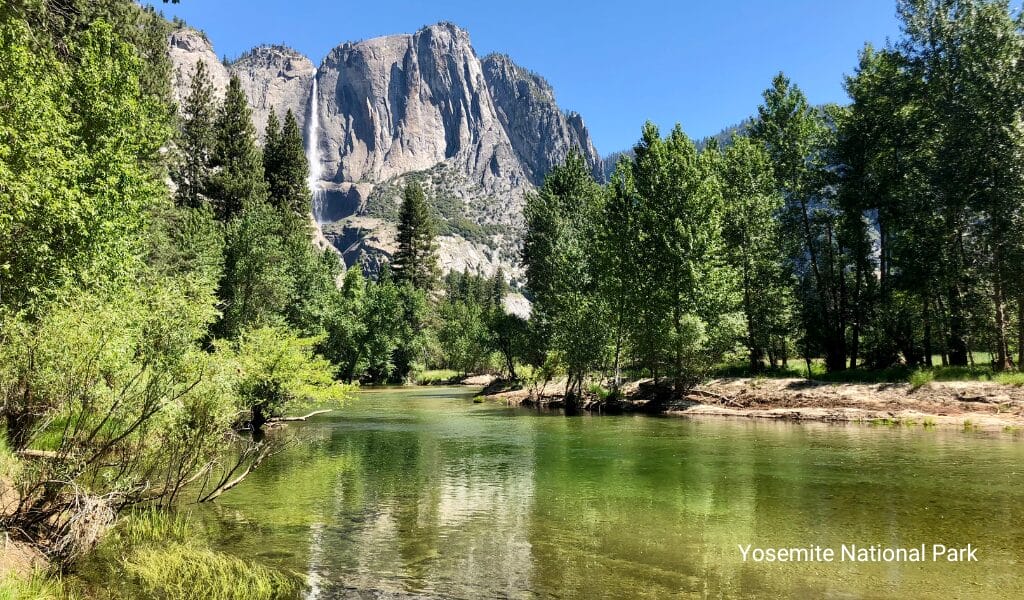Sustainable Tourism: A Transatlantic Perspective
Sustainable tourism is gaining worldwide importance as travelers make more eco-conscious choices and businesses integrate sustainable practices into their models. This trend is supported by international collaborations and initiatives to minimize tourism’s ecological footprint while maximizing economic benefits. This article highlights critical sustainable tourism projects in the USA and Europe, especially Germany, providing in-depth insights into their economic impacts and investment opportunities.

Economic Impacts of Sustainable Tourism
Sustainable tourism significantly contributes to economic development by promoting eco-friendly practices, creating jobs, and supporting local communities. According to a report by the UNWTO (United Nations World Tourism Organization), sustainable tourism plays a crucial role in poverty reduction and revenue generation. / Sources: UNWTO: Tourism and the Sustainable Development Goals | WTTC
Successful Projects in the USA
Yosemite National Park: Yosemite National Park is a leader in sustainable tourism with initiatives to reduce its ecological footprint and promote conservation. / National Park Service (NPS): Yosemite
New York City’s Green Hotel Initiative promotes eco-friendly practices in the hospitality industry to reduce energy consumption and waste production. / Source: Green Lodging News: NYC Green Hotels
You will find detailed information on US projects at the end of the article.

Successful Projects in Europe
Hamburg is one of the most sustainable cities in Europe. It is known for its green building projects and for transforming former industrial areas into eco-friendly neighborhoods, like the “Energieberg Georgswerder.” / Source: Hamburg
Schwäbische Alb: This UNESCO Biosphere Reserve promotes sustainable tourism by offering free public transportation for regional tourists and over 150 holiday accommodations. / Source: UNESCO Biosphere Reserves / Source: Mobil vor Ort
Transatlantic Collaborations
U.S.-Germany Climate and Energy Partnership
Partnership Goals
- Promotion of Sustainable Energy: The partnership focuses on expanding renewable energies such as wind and solar power to create a more sustainable energy supply and reduce dependence on fossil fuels.
- Development of Sustainable Technologies: Another key goal is fostering innovations and technologies that help reduce the environmental footprint, including energy-efficient buildings and eco-friendly transportation.
- Strengthening Climate Protection: Through joint efforts, measures are taken to reduce greenhouse gas emissions and limit global temperature increases.
Impact on Tourism
The technologies and measures developed and promoted under this partnership have direct and indirect impacts on the tourism sector:
- Energy-Efficient Accommodations: The partnership promotes energy-efficient technologies and sustainable construction practices for hotels and other accommodations, reducing operating costs and attracting eco-conscious travelers.
- Sustainable Transport: Promoting eco-friendly transport, such as electric vehicles and public transport systems, makes sustainable travel easier for tourists, reduces environmental impact, and supports climate goals.
- Awareness and Marketing: The partnership raises awareness of the importance of sustainable travel, potentially increasing demand for eco-friendly travel options and boosting the market for sustainable tourism.
Specific Projects
Offshore Wind Energy A key project is promoting offshore wind energy. Under the partnership, an expert delegation from the U.S. visited Germany to learn about German experiences and technologies in offshore wind energy. The goal is to adapt these insights and technologies in the U.S. to expand the use of renewable energies (The White House) (Adelphi).
Hydrogen Technology Another crucial project is developing and implementing sustainable hydrogen technologies. Joint workshops and virtual expert meetings were held to harmonize regulations and certifications for hydrogen. This project aims to establish hydrogen as a sustainable energy source, further reducing CO2 emissions (adelphi).
Electromobility The partnership also promotes the adoption of electric vehicles, including developing charging infrastructure and supporting their market introduction. This effort aims to reduce greenhouse gas emissions, improve air quality, and decrease reliance on fossil fuels (Adelphi).

Cooperation with Third Countries Another important aspect of partnership is supporting energy transitions in emerging economies. Investments are made in sustainable energy projects in Central and Eastern Europe and Asia. For example, the partnership supports Ukraine’s energy transition and security through sustainable energy solutions and energy efficiency measures (AHK USA-Chicago Consulting) (Adelphi).
Source & further Information
- White House Fact Sheet: U.S.-Germany Climate and Energy Partnership
- German American Chamber of Commerce
- Adelphi: USA and Germany launch Climate & Energy Partnership
Global Partnership for Sustainable Tourism
The Global Partnership for Sustainable Tourism is an international initiative coordinated by UNEP (United Nations Environment Programme) and UNWTO (World Tourism Organization). This partnership aims to unite stakeholders from various countries, including the USA and Germany, to develop and implement sustainable tourism projects.
Mission and Goals
- Transformation of Tourism: The partnership aims to transform how tourism is conducted globally by building partnerships that support implementing sustainable tourism practices at various destinations.
- Policy Frameworks: Developing and promoting policies that favor sustainable tourism.
- Innovative and Transformative Projects: Supporting and executing projects that advance sustainable practices in tourism.
- Knowledge Transfer: Sharing knowledge and experiences to promote best practices.
Focus Areas
The partnership focuses on seven thematic areas:
- Policy Frameworks and Governance
- Climate Change
- Environment and Biodiversity
- Poverty Alleviation
- Cultural and Natural Heritage
- Sustainability Practices in the Private Sector
- Integrating Sustainability in Finance and Investments

Specific Projects and Initiatives
- Networking: Supporting partners and tourism stakeholders worldwide by exchanging experiences, successes, and resources.
- Technical Assistance: Providing technical assistance and advice to countries in developing and implementing sustainable tourism projects.
- Research and Knowledge: Access to research findings, guidelines, tools, and reports from UN agencies, international organizations, and academic institutions.

Example Project
A concrete example of a project implemented under this partnership is the support for sustainable tourism projects in developing countries. This includes technical assistance in implementing projects that promote climate protection, protect biodiversity, and alleviate local poverty.
Further Information
Detailed information on the Global Partnership for Sustainable Tourism can be found on the following websites:
- UN SDGs Platform: Global Partnership for Sustainable Tourism
- SDG Knowledge Hub: UNEP, UNWTO Launch Global Partnership for Sustainable Tourism
These initiatives demonstrate how international collaboration in sustainable tourism can be concretely implemented and the positive impacts this can have on the environment and local communities.
Investment Opportunities
Investments in sustainable tourism projects offer significant economic benefits. Examples include:
- Green Hotels and Resorts: Investments in eco-friendly accommodations that use renewable energy and promote sustainable practices.
- Eco-tourism Companies: Supporting tour operators that offer sustainable and environmentally conscious travel experiences.
- Infrastructure Development: Funding projects to improve sustainable transport infrastructure, such as electric vehicle fleets and bike-sharing systems.

Conclusion
Sustainable tourism offers ecological and social benefits as well as significant economic opportunities. Businesses and investors can contribute to environmental conservation by investing in sustainable projects while reaping financial benefits. International collaborations between the USA and Germany are crucial and provide valuable insights into sustainable investment opportunities.
Here you will find detailed information about the US projects
Sustainable Initiatives and Practices in Yosemite National Park
- Water Management:
- Yosemite National Park has implemented extensive water-saving and management measures. This includes installing water-saving devices and monitoring water usage to protect natural water resources.
- Waste Management:
- The park follows a Zero-Waste strategy aimed at significantly reducing landfill waste. This is supported by comprehensive recycling and composting programs. Visitors are encouraged to reduce and recycle their waste.
- Energy Efficiency:
- Yosemite National Park has installed energy-efficient lighting and heating systems. Many buildings in the park use renewable energy sources like solar power. Measures to reduce energy consumption have been implemented in all facilities.
- Biodiversity Conservation:
- The park actively engages in protecting and conserving its diverse ecosystems. This includes habitat restoration programs, endangered species protection measures, and combating invasive species.
- Environmental Education and Outreach:
- Yosemite offers numerous educational programs and workshops to inform visitors about the importance of conservation and sustainable practices. Ranger-led tours, information centers, and environmental education centers play a key role in raising public awareness.
- Sustainable Transport:
- To reduce traffic and protect the environment, Yosemite National Park offers an extensive network of shuttle buses. These buses use alternative fuels and provide a convenient way to explore the park without using personal vehicles.
- Research and Monitoring:
- The park conducts continuous research and monitoring to understand the environmental impacts of tourism and develop sustainable solutions. This includes studies on water quality, wildlife populations, and vegetation.
- Sustainable Accommodations:
- Many accommodations in Yosemite National Park are designed with sustainability in mind. This includes using eco-friendly building materials, energy-efficient appliances, and implementing recycling and waste management systems.
Significance and Impact
The sustainable initiatives in Yosemite National Park not only positively impact the environment but also serve as a model for other national parks and conservation areas worldwide. By promoting sustainable practices, the park helps preserve its unique natural resources while offering visitors the opportunity to responsibly enjoy the beauty of nature.Further Information
- National Park Service (NPS): Yosemite: Detailed information about Yosemite National Park’s sustainability initiatives and programs can be found on the official National Park Service website.
New York City’s Green Hotel Initiative: Environmentally Friendly Practices in Hospitality
Goals of the Green Hotel Initiative
The Green Hotel Initiative has several main goals:- Reduce energy consumption: By implementing energy-efficient technologies and practices, hotels should significantly reduce their energy consumption.
- Waste reduction: Hotels are encouraged to introduce comprehensive recycling and waste management programs to reduce the amount of waste generated.
- Promote renewable energy: The initiative promotes the use of renewable energy sources like solar and wind power in hotels.
- Eco-friendly practices: The initiative aims to help hotels integrate sustainable and environmentally friendly practices into their daily operations.
Measures and Practices
- Energy Efficiency Measures:
- LED Lighting: Replacing traditional light bulbs with LED lighting saves significant amounts of energy.
- Energy-Efficient Appliances: Hotels are encouraged to install energy-efficient appliances and systems, including HVAC (heating, ventilation, and air conditioning) and kitchen equipment.
- Smart Thermostats: Installing smart thermostats helps optimize energy consumption by adjusting the temperature based on room occupancy.
- Waste Management:
- Recycling Programs: Hotels implement comprehensive recycling programs to ensure proper recycling of paper, glass, plastic, and metal.
- Composting: Introducing composting programs for organic waste from kitchens and restaurants.
- Reducing Single-Use Plastics: Hotels are encouraged to replace single-use plastics with more environmentally friendly alternatives, such as reusable water bottles and biodegradable packaging.
- Water Conservation:
- Water-Saving Fixtures: Installing water-saving showerheads, faucets, and toilets to minimize water consumption.
- Gray Water Systems: Implementing gray water systems to reuse water for non-potable purposes like irrigation.
- Renewable Energy:
- Solar Power: Installing solar panels on hotel rooftops to utilize renewable energy sources.
- Wind Power: Using wind power where possible to meet the energy needs of hotels.
- Eco-Friendly Cleaning:
- Green Cleaning Products: Using environmentally friendly cleaning products that are less harmful to the environment and guest health.
- Microfiber Cleaning Cloths: Using microfiber cleaning cloths that require fewer cleaning agents and are more durable.
Successes and Benefits
The Green Hotel Initiative has several advantages and successes:- Cost Savings: Hotels that implement sustainable practices benefit from significant cost savings through reduced energy and water consumption.
- Environmental Protection: Reducing the ecological footprint by decreasing waste and energy consumption helps protect the environment.
- Attractiveness to Eco-Conscious Travelers: Hotels that actively pursue sustainability are more attractive to eco-conscious travelers and can build a more loyal customer base.
- Improved Brand Perception: Participation in the Green Hotel Initiative enhances the image and perception of hotels as responsible and sustainable businesses.
Example Hotels
- 1 Hotel Central Park: This hotel is known for its sustainable practices, including the use of recycled materials, energy-saving systems, and eco-friendly cleaning products.
- The Peninsula New York: The hotel relies on solar power, energy-efficient lighting, and comprehensive recycling programs.
- The Benjamin Hotel: The hotel has implemented various energy-saving and waste reduction initiatives, including installing smart thermostats and using green cleaning products.
Further Information
- Green Lodging News: Current news and articles about sustainable practices in the hospitality industry.




